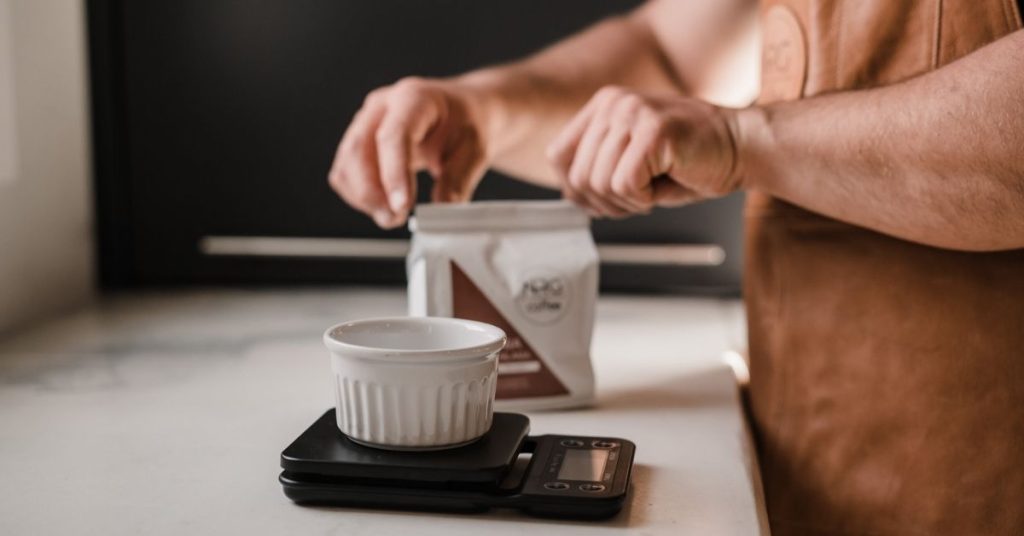How to Make Coffee Less Acidic: Tips and Tricks
If you’re a coffee lover, you know that acidity is a crucial aspect of the coffee flavor profile. However, sometimes coffee can be too acidic, leading to stomach discomfort or heartburn. Fortunately, there are ways to reduce coffee less acidic without sacrificing taste.
So, how to make coffee less acidic? One way to reduce acidity in coffee is to choose the right beans. Darker roasts of coffee tend to have lower acidic levels than lighter roasts. Additionally, beans from certain regions, such as Brazil or Sumatra, tend to have lower acidic levels. When shopping for coffee, look for beans labeled as “low-acid” or “mild” to help alleviate acidity.
Another way to lower coffee acidic is to change the extraction method. Cold brewing. This is because cold water extracts fewer acids from the coffee beans. Additionally, using a French press or a pour-over method can result in smoother java. In this article, join Aspect Coffee Works in testing different extraction methods to find the method that best suits you and your preferences.
Contents
- 1 The Right pH of Coffee: Understanding Acid In Your Coffee
- 2 What are the Benefits of Brewing Coffee Less Acidic?
- 3 Choosing the Right Coffee Beans Make Your Coffee Less Acidic
- 4 Discovered How to Make Coffee Less Acidic
- 5 Adjust Water Quality To Balance Coffee Acidity
- 6 Adding Ingredients to Less Acidic Coffee
- 7 Conclusion
The Right pH of Coffee: Understanding Acid In Your Coffee

As a coffee lover, I understand how tanginess can affect the taste of coffee. Tanginess is the bright and dry taste that adds life to coffee, but excessive amounts can result in a sour taste.
The pH level of coffee is between 4.5 to 6, which means coffee is acidic. However, it’s not as acidic as many other beverages you might drink throughout the day. For example, orange juice has a pH of 3.3, and soda has a pH of 2.5.
If you want to brew smoother coffee that contains less acidity, less acidic brew of coffee, there are a few things you can do. First, try using darker roasted coffee. Darker roasts have less natural acid content than lighter roasts. The roasting process diminishes the acidity of the coffee beans by breaking down the chlorogenic acid.
Another method is cold brewing. Cold brewing involves steeping ground coffee in cold water for 12 to 24 hours. The resulting coffee is less bitter and acidic than hot brew.
Lastly, you can try adding a pinch of salt to your coffee. Salt can help counteract the acid in coffee and make it taste smoother.
In summary, understanding the natural acidity of your coffee is important in making a well-balanced and tasty cup. By using darker roasts, cold brewing, or adding a pinch of salt, you can brew smoother coffee that is more enjoyable to drink. These methods can also act as acid reducers for your coffee, which may benefit your health and digestion.
What are the Benefits of Brewing Coffee Less Acidic?

As someone who loves coffee but has a sensitive stomach, I know the struggle of trying to find a way to drink coffee without experiencing discomfort. That’s why I started researching ways to refine coffee smoother, and I was pleasantly surprised to learn about the benefits of doing so. Here are a few of the benefits I discovered:
Reduced Heartburn
One of the most common reasons people seek out ways to prepare coffee smoother is to reduce heartburn and acid reflux. When coffee is too acidic, it can irritate the lining of the esophagus and cause that burning sensation we all know too well. By brewing coffee with less stomach acid, you can still drink coffee in your morning cup without the discomfort.
Fewer Stomach Problems
In addition to heartburn, drinking sour coffee can also cause other stomach problems like nausea and indigestion. By reducing the acidity of your coffee, you can avoid these unpleasant side effects and enjoy a more comfortable coffee-drinking experience.
Improved Flavor
Believe it or not, mitigating acidity can actually improve its flavor. When coffee is too acidic, it can taste bitter and unpleasant. By reducing the acidity, you can bring out the natural flavors of the beans and enjoy a smoother, more enjoyable mug of coffee.
Health Benefits
Some studies have suggested that drinking low-acidic coffee may have health benefits as well. For example, one study found that drinking low-acid coffee reduced the risk of acid reflux in participants. Additionally, some people find that drinking lower-acidity coffee helps improve their digestion and overall gut health.
Overall, there are many benefits to making coffee less acidic. Whether you’re looking to reduce heartburn, avoid stomach problems, improve the flavor of your coffee, or potentially even improve your health, it’s worth giving it a try.
Choosing the Right Coffee Beans Make Your Coffee Less Acidic

As a coffee lover, I know how important it is to choose the right coffee beans to brew a perfect cup of coffee. Not only do the right beans enhance the flavor and aroma of coffee, but they can also lower its acid level. Here are a few things to keep in mind when choosing the right coffee beans to brew your coffee smoother.
Arabica Vs Robusta
Arabica and Robusta are the two most common types of coffee beans. Arabica beans are known for their sweet, fruity, and acidic flavor, while Robusta beans have a stronger, earthy, and bitter taste. If you want a smoother brew, low-acid coffee beans are the way to go. They contain less acid than Robusta beans, making them a better choice for people with sensitive stomachs.
Shade-Grown Coffee
Shade-grown coffee is another great option for people seeking a smoother coffee experience. Shade-grown coffee is grown under a canopy of trees, which slows down the ripening process and results in beans with less pronounced tang. This type of coffee is also more environmentally friendly, as it promotes biodiversity and helps to preserve natural habitats.
In addition to Arabica beans and shade-grown coffee, there are other factors to consider when choosing the right coffee beans to brew your coffee smoother. For example, the altitude at which the beans are grown, the type of soil they are grown in, and the processing method used can all influence the flavor profile of the beans. By taking these factors into consideration, you can choose the right coffee beans to make a perfect beverage that is smoother and more enjoyable to drink.
Discovered How to Make Coffee Less Acidic

As a coffee lover, I understand the struggle of enjoying a cup of coffee that is too acidic. Luckily, there are a few coffee-making techniques that can help brew smoother coffee. Here are three methods that I have found to be effective:
Cold Brew
Cold brew is a simple and popular coffee-making technique that can help reduce the tartness of your coffee. To make cold coffee, simply steep the coffee powder in cold water for 12 to 24 hours. This method results in a gentler coffee, with less caffeine from the coffee, ideal for those with sensitive stomachs.”
French Press
The French press method is another way to brew a smoother cup of coffee. This method involves steeping coffee powder in hot water for a few minutes before pressing it down with a plunger. The result is bold and full-bodied, known for its balanced taste profile compared to other extraction methods.
Eggshell Method
The eggshell method is a unique way to prepare your coffee smoother. Simply infuse your coffee with eggshells before brewing. The calcium in the eggshells helps balance the acid in the coffee, resulting in a smoother and less acidic cup.
Overall, these coffee preparation techniques are effective ways to brew smoother coffee. Give them a try and see which one works best for you!
Adjust Water Quality To Balance Coffee Acidity

As a coffee lover, I have learned that water quality plays a crucial role in determining the acidity level of coffee. If you’re using tap water, it might contain minerals that can affect your coffee’s acidity. Therefore, it’s essential to adjust the water quality to enhance your coffee’s smoothness.
Filtered Water
One of the easiest ways to adjust water quality is to use filtered water. Filtering your water can remove impurities, such as chlorine, that can affect the taste profile of your coffee. You can use a water filter pitcher or a faucet filter to filter your water.
Using filtered water can also help prevent mineral buildup in your coffee maker, which can affect the taste of your coffee. Make sure to change your filter regularly to ensure that it’s working correctly.
Alkaline Water
Another way to adjust water quality is to use alkaline water. Alkaline water has a higher pH level than regular tap water, which can help neutralize the acidity in your coffee. You can purchase alkaline water at your local grocery store or use an alkaline water filter to make your own.
However, it’s essential to note that using alkaline water can affect the taste of your coffee. Some people might find that their coffee tastes bitter or metallic when using alkaline water. Therefore, it’s essential to experiment with different water types and find the one that works best for you.
In conclusion, adjusting water quality is an easy and effective way to balance your coffee’s flavor profile. Whether you choose to use filtered water or alkaline water, make sure to experiment with different water types to find the one that works best for you.
Adding Ingredients to Less Acidic Coffee

If you’re looking for a way to make your coffee smoother without sacrificing flavor, adding ingredients to your coffee is a great option to consider. Here are some ingredients you can add to your coffee to make it less acidic.
Milk and Cream
Adding milk or cream to your coffee can soften its tang. The fat in milk and cream helps to balance the acid in coffee, making it less harsh on your stomach. Plus, it can add a creamy and rich flavor to your coffee.
Baking Soda
Baking soda is another ingredient you can add to your coffee to make it smoother. Just a pinch of baking soda can help neutralize the acid in your coffee sans affecting its taste. Simply add a pinch of baking soda to your coffee grinds before brewing, or stir it into your brewed coffee brewing.
Add Eggshells To Your Coffee Grounds
Another way to a smoother coffee experience is by adding crushed eggshells to your coffee powder before brewing. Eggshells are alkaline and can help acid neutralization in coffee, resulting in a smoother and less bitter taste. Simply crush up some eggshells and mix them in with your coffee grinds before brewing.
By adding milk or cream, baking soda, or crushed eggshells, you can soften the coffee’s tang and enjoy a smoother and less harsh mug of coffee. Experiment with different ingredients to find the perfect balance for your taste buds.
Conclusion
In conclusion, there are several ways to make coffee smoother and more enjoyable for those who experience discomfort from its tartness. In conclusion, there are several ways to make coffee smoother and more enjoyable for those who experience discomfort from its tartness. Many people enjoy a mug of coffee every morning, but the natural acidity can sometimes cause stomach upset.
One of the easiest ways to tone down the acidity is by adding alkalizing additives such as baking soda. Another option is to use low-acid coffee beans or darker roasts, which have a lower acidity level. Additionally, adjusting the brewing method by using more water or using a coarser grind size can also help.
It is important to note that while toning down the acidity can make coffee more palatable, it can also affect the taste and flavor profile of the coffee. Therefore, it is recommended to experiment with different methods and find the one that works best for your taste preferences.
Overall, making coffee smoother can be a simple and effective way to enjoy a delicious cup of coffee without experiencing discomfort.







